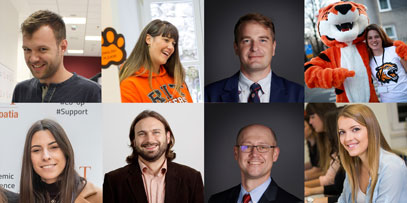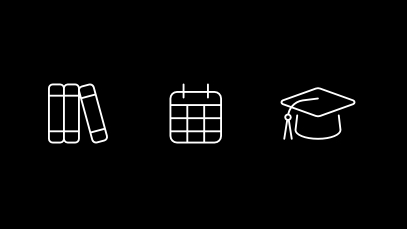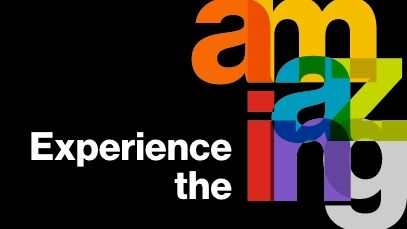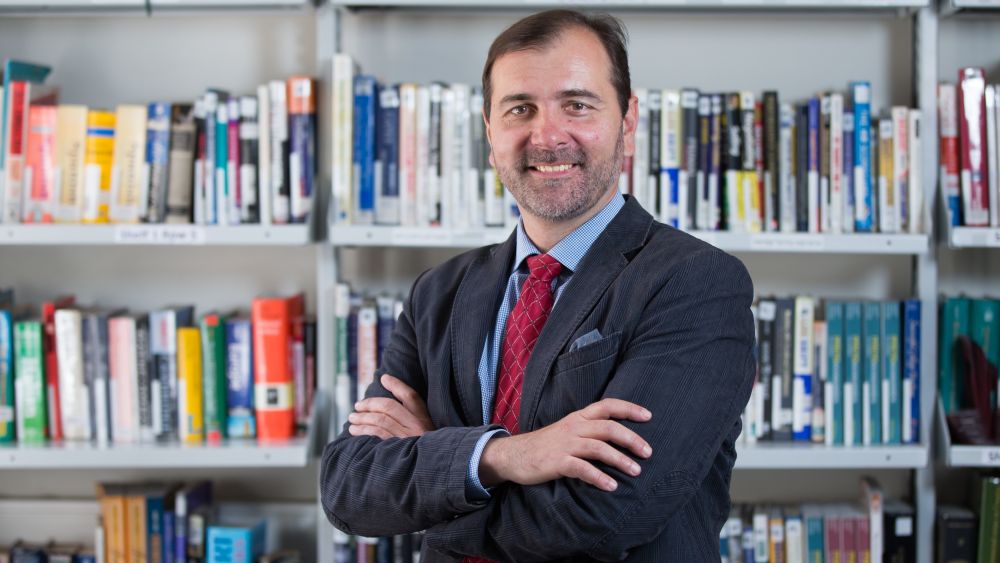RIT Croatia Hospitality YouTube Channel: Using Online Platform for Exchanging Thoughts with Experts in Luxury Travel
RIT Croatia Hospitality YouTube Channel: Using Online Platform for Exchanging Thoughts with Experts in Luxury Travel
November 25, 2020
Domagoj Nikolić, one of RIT Croatia's Faculty members, has been teaching Hospitality and Tourism Management courses at the Dubrovnik campus since 2011. Before, he was doing international work related to postwar reconstruction, reconciliation, and security all over former Yugoslavia and the Middle East. When he ended that career, he was involved in his own business in wine making and tourism, and did a lot of tour-guiding, especially for VIPs, thus developing a keen interest for luxury travel phenomena. Domagoj holds a BS degree from London School of Economic and Political Science, an MS degree from Rochester Institute of Technology and currently he is a PhD Candidate at the International School for Social and Business Studies in Celje, Slovenia.
Recently Domagoj has established an RIT Croatia Hospitality YouTube channel to make up for the disruption of other experiential learning plans due to COVID-19. How does this YT channel fit into his teaching outcomes, you may wonder? Domagoj has answers you might be interested to read…
Q: How did you come up with the idea of creating an RIT Croatia Hospitality YT Channel?
Domagoj Nikolić: Since at least 2014, the HTM team of RIT Croatia has been crafting a concentration of courses in luxury travel. We believed that Dubrovnik and some other locations in our neck of the woods are ideally suited because of the historic riches, natural beauties and human potential. At the same time, we were aware that we were not adequately using these potentials and wanted to do something which would help accelerate the development. That is how we started our "Luxury Concentration" which was envisaged as not just theoretical, but also experiential, because many aspects of luxury hospitality must be experienced or, if you want, phenomenologically discovered by our senses in order to be conceptualized and understood. This is why we planned an 8-day trip to Dubai full of high-end experiences including Burj Al Arab, JW Marriot Marquis, Emirates Palace, Dubai Marina, Dubai Ski, etc. as a capstone of the students' learning journey where they would be able fully grasp not just luxury concepts, but also the value and context of their education at RIT Croatia. And, since we got disrupted by Covid-19, I had to come up with something to make up for this loss and the only logical and possible thing was to bring top hospitality professionals to the virtual classroom, instead of us going to visit them. It is not quite the same, but offers a lot of value in a different sense.
Q: How does this idea fit into the new teaching environment and conditions caused by COVID-19 pandemic?
Domagoj Nikolić: I think it fits quite well. The whole thing requires a certain recalibration of our minds and conscious steps outside of our comfort zone. We are trying to create a new culture of communication by learning how to use technological platforms in an active sense of creation, rather than just passively act as consumers of the served information. Students are given opportunities to interview the guests directly, connect to them and network, which is another great chance in their senior year when they prepare to leave the college.
Q: How did your students react to their involvement in the interviews?
Domagoj Nikolić: We had different reactions, as always. We would all like to believe that innovations are always met with enthusiasm and that young generations are always adventurous and enthusiastic, but life often teaches us differently. Human nature is by definition inert and opposed to change. I would say that students who are more professionally accomplished and mature, who are positively ambitious and invest more time in character building really appreciate experiential learning. And we inevitably have those who still like to take the stand of passive observers. I chose not to push and leave the door open to those who are ready take the opportunity. I also think that every course takes time to build its own cultural legacy. Once we create this social field, things will start moving faster and, since we have just kicked off our Luxury Concentration, we are still in the heavy lifting phase. But, so far so good! We had a good number of students who readily stepped up to the plate, which is objectively not easy, because they have to talk with people with lots of professional and personal gravitas and meanwhile, they may feel insecure, because they are just rookies. But soon they discover that they are talking to phenomenal human beings who are generous with their time, knowledge and attention, and then something good happens.
Q: Do you find that it is challenging to induce students into conducting interviews?
Domagoj Nikolić: There is a military adage that prior preparation and planning prevents poor performance. I also think that preparation and planning are key. We study the interviewees in terms of their career path and work, we think about questions we want to ask them, we prepare the announcement, we prepare the sequence of questions so that our final product has a nice, logical flow. Then, if the interview is to be done by a team of interviewers, we make sure that the questions are evenly divided and that everyone is comfortable with their questions. We also think of the possible follow ups and generally try to cultivate a relaxed, casual atmosphere. In order to make our interviewees more comfortable we send them questions in advance and also receive their feedback and suggestion. At that stage the connection is already made and we start to mentally synchronize. Often times during this preparation process, the students become very keen to finally meet their interviewees and this emotional component can be felt in the interviews.
Q: Do you find that it is challenging to find interviewees?
Domagoj Nikolić: I am incredibly grateful to all our interviewees, because they are genuinely generous with their knowledge and time. We know it is not easy to give away a few hours of your time in such a challenging period. And is it hard? I would not say it was hard, because the response was very good. I think when you are at that level, and luxury hospitality is the crown jewel of the industry in so many ways, you understand that you have to give back and how challenging it is to develop workforce able to conceptualize and operate at the luxury level. It wasn't hard in that sense, but what is objectively hard sometimes is adjusting our clocks due to time zones and it's just the nature of chaos that we live in today. Things get in the way, interviews are pushed back, and you simply have to show flexibility. It is not a phrase, again, we are deeply grateful to all our interviewees, humbled by their knowledge and generosity, and feel we also made some new friends. When you find individuals who are on the same wave length, you simply start to resonate which can be felt long after the interviews were produced. And remain connected.
Q: What are the learning benefits for students having this kind of content available?
Domagoj Nikolić: I think it's a great thing that we are building this type of knowledge repositorium. When we are done with this interview series, we will have an amazing range of topics covered: from Authentic Luxury Gastronomy, Mindful Luxury, Sustainable Integrative Luxury to Luxury Sales and Marketing, Guest Experience Research & Innovation to you name it. I think that we will discover the wealth of knowledge that we built only in hindsight. For students, it is absolutely phenomenal to acquaint themselves to luxury concepts by learning first hand from the top industry professionals. I think they get a lot of energy when they realize they talk to individuals who are not just top professionals and great people, but also are on a first name basis with royals, movie stars, various musical artists, politicians, etc. They also realize that some of these people are still quite young and graduated from our school. I think this kind of identification can be incredibly inspiring. I think that all of our students will benefit and that, if we in every generation inspire three students to follow in the footsteps of their amazingly accomplished predecessors, we have done a great service to our industry. Imagine what top 30 people can do, what difference they can make! And if we accomplish this in 10 years, it will be a legacy program.
Q: What did you learn from introducing such content in your course?
Domagoj Nikolić: Luxury hospitality is an incredibly interesting topic, not from the point of view of conspicuous consumption, because you soon discover that the wealthiest people spend next to nothing on luxury goods that supposedly impress someone. Instead, they spend on lifestyle and transformative experiences. In other words, they spend on getting house help so they can take control of their mind, body and time. That is the contemporary definition of luxury! Yes, the definition of luxury to a degree always remains between the ears of the beholder, but we can definitely see where things are moving powered by technological trends. Those things aside, I think that teaching is an incredible way to discover the world, yourself and others. I am still in the process of integrating what I personally learned by teaching this course, but I think that I am rediscovering that the delicate balance between freedom and structure in teaching is not always easy to reach, and that in experiential learning by definition we need to let go of control, because we necessarily leave the safe and secure environment of classroom by tearing down the classroom walls and opening ourselves to the world. Experiential learning is a culture that must be permanently built and only time will tell how successful we are. Once we are there, we will be able to experience it and it will be a great feeling.
Q: What would be your message to the wider audience about importance of using online platforms for sharing knowledge?
Domagoj Nikolić: I guess my message to the wider audience is that internet is a blessing and a curse; it is our cure and poison. We can literally waste our life away by devouring trashy content on the internet or, alternatively, we can Google our way into the enlightenment. I think we built an incredible small repositorium of knowledge on luxury hospitality and would invite everyone interested into the topic to take a listen and figure out where we stand individually and collectively on the global ranking, get familiar with the major industry trends and that will be a great springboard for future discoveries and innovations.
You can check out the RIT Croatia Hospitality YouTube Channel HERE.
Recommended News
-
November 15, 2024
-
November 5, 2024
-
October 31, 2024
-
October 30, 2024











